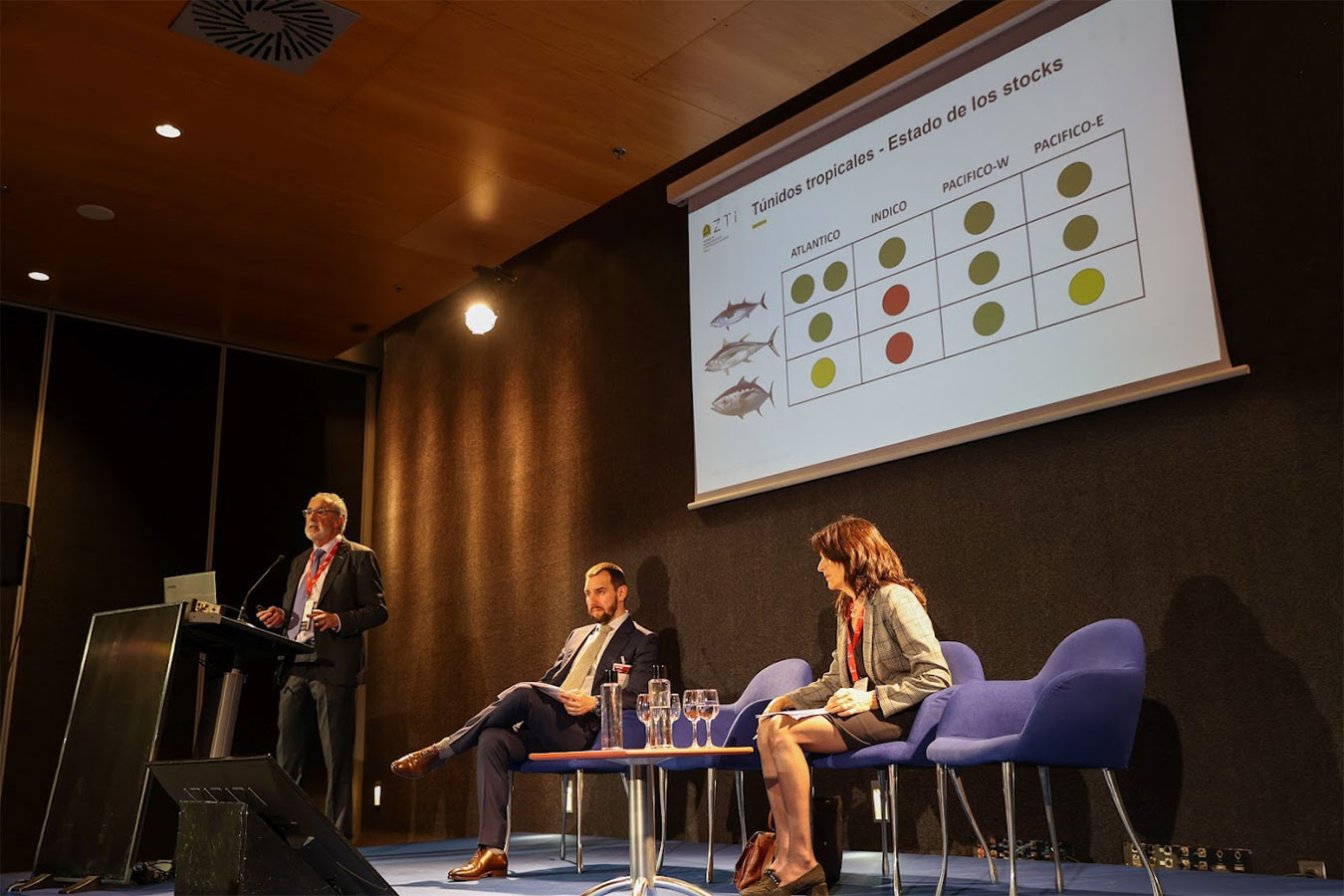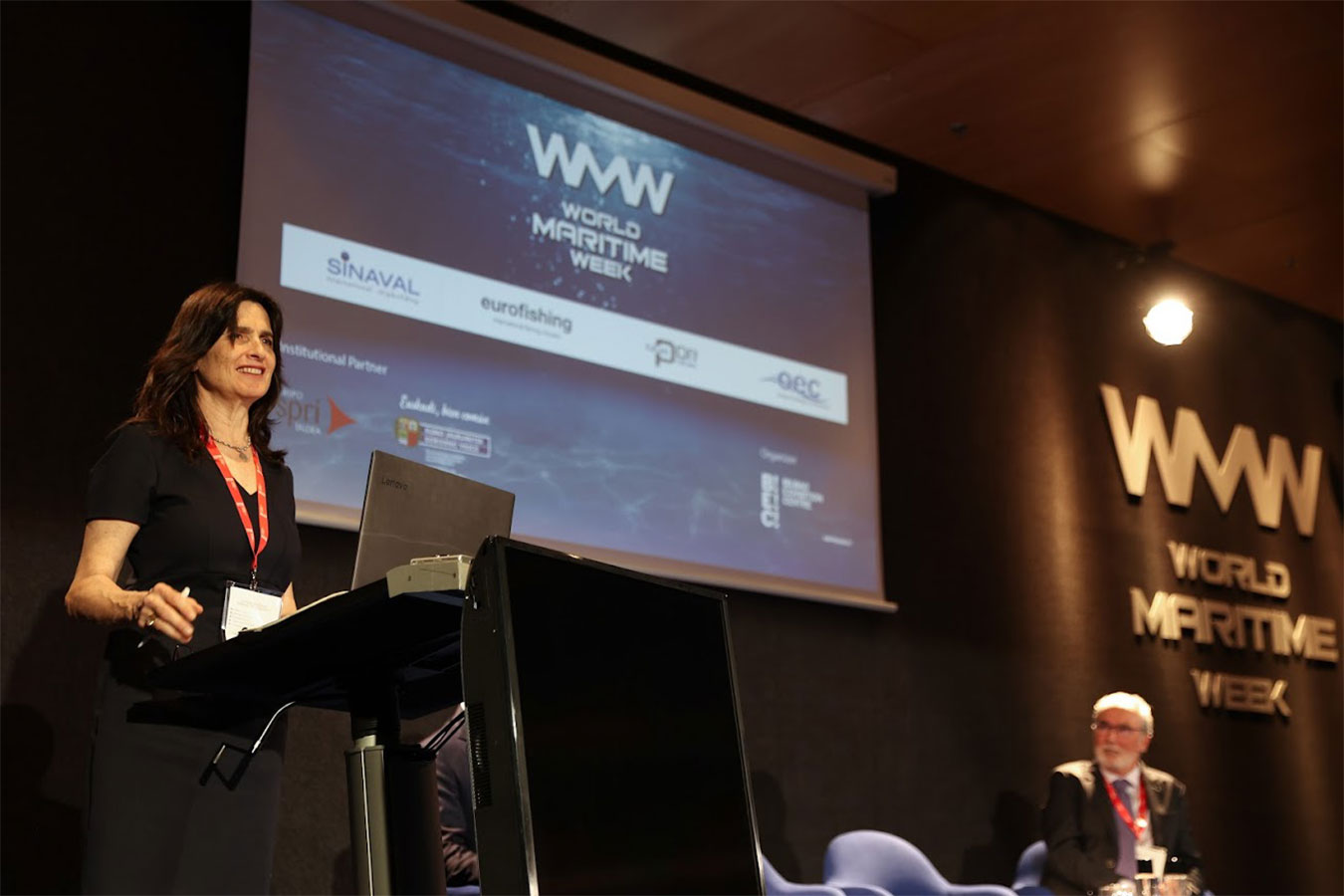
International co-operation, key to the future of the fishing sector
The tuna RFMOs (Regional Fishery Management Organisations) and sector situation concentrated the first panel of the session on tuna freezers scheduled by Bilbao Exhibition Centre in the Eurofishing congress. Organised by ANABAC, the first two speeches were made by Josu Santiago, Tuna Fishing Sustainable Management Area co-ordinator at AZTI, and Teresa Molina, General Subdirector of Regional Fishing Agreements & Organisations of the Spanish Ministry of Agriculture, Fisheries and Food.
Santiago stated the main figures reflecting the status of tuna stocks worldwide, pointing out that: “We’re currently close to 5 million tonnes, i.e. a million and a half below what is considered maximum sustainable performance.” In this sense, he highlighted that: “86% of world tuna catches come from resources in a good situation.” However, the AZTI expert did point out that 11% of fishing occurs in over-exploited areas, and regarding tuna species in a delicate situation he mentioned the bigeye tuna and yellowfin.
To change this scenario, Josu Santiago expressed his confidence in the steps adopted by the tuna RFMOs. On this point, he recalled the decline tuna populations suffered in the 80s, which was rectified thanks to conscientious work which brought results 3 decades later, highlighting: “It’s great news because it proves these organisations work”, prior to stating efforts should now be aimed at preserving other species like sharks.
Referring to this challenge allowed him to move onto the chapter of challenges which the sector will have to tackle in the following decades. In addition to the effects of climate change, he confirmed there was nothing quite so necessary as establishing “new pre-agreed planning procedures giving greater security to all operators, such as the recent agreements on the Atlantic bluefin tuna, skipjack tuna in the west Pacific and bigeye tuna in the Indian Ocean.” He also insisted on the importance of multilateralism because “if we work together great achievements can be attained.”

ILLEGAL FISHING & MINERALS
Co-operation via international governance to advance in ocean sustainability without “duplicating agreements” was one of the ‘recipes’ prescribed by Teresa Molina, General Subdirector of Regional Fishing Agreements & Organisations, since only then can we “fight against illegal fishing which is so damaging for stocks worldwide.” The Spanish Government representative mentioned fishing and mineral extractions from the seabed would involve complicated co-existence. She stated that: “There’s more and more technology to do this; however, it’s not a harmless activity, so there’s going to have to be a lot of collaboration here among the different interests to defend fishing and the environment.”
Before tackling these challenges, Molina recalled the first regional fishing organisation came into being over a century ago involving Canadian and US authorities to regulate halibut fishing in the Pacific. She explained: “The agreement came about at the behest of the fishing sector due to the decline in this species because of steamboats being used to fish”, in order to highlight that sector involvement regarding environmental preservation matters is not new.
In this respect, the expert emphasised the change in the EU common fishing policy model, since: “Until 2013 it was centred on maintaining international fleets and guaranteeing market supplies. However, since that year, the aim has been for responsible sustainable fishing.” She also spoke about other purposes guiding community action like: scientific development, integrating environmental and development cooperation aspects, and fighting climate change.


